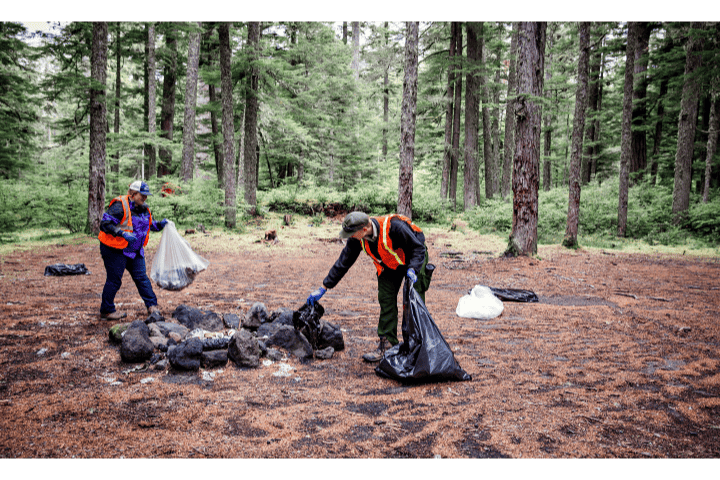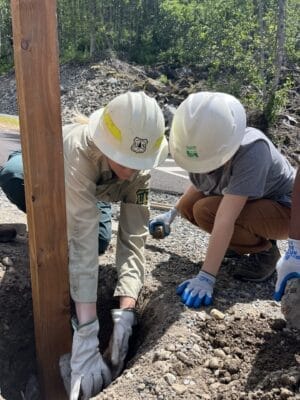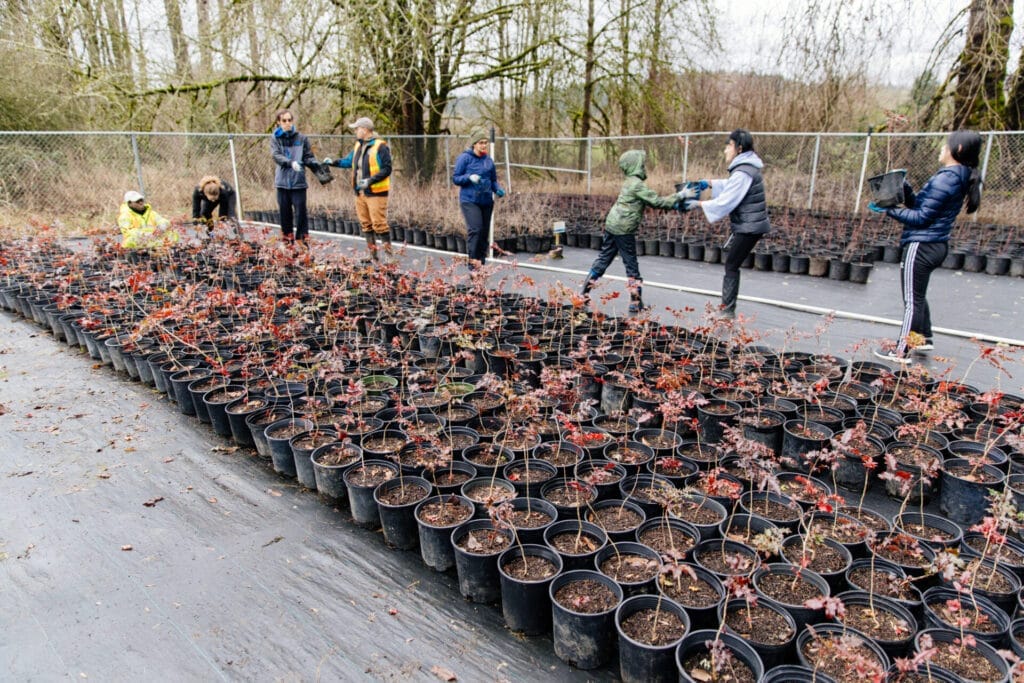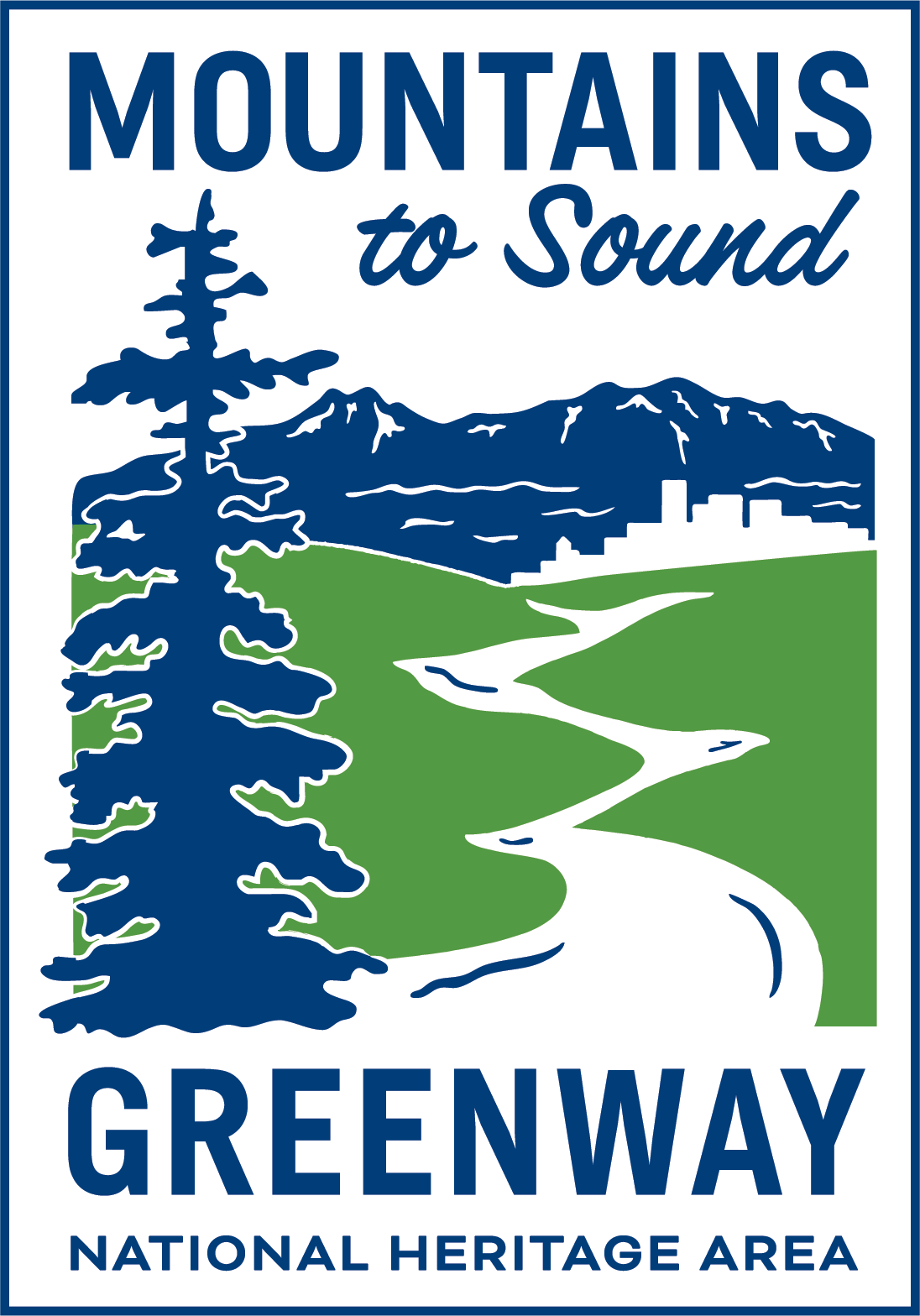Public Lands Are at Risk—Here’s What You Can Do to Help
Last updated March 13, 2025. Please note that this situation is changing rapidly — check current news sources for the most up to date numbers and announcements.
The mass firings within the USDA Forest Service (Forest Service), National Park Service (NPS), Bureau of Land Management (BLM), and the U.S. Fish and Wildlife Service (FWS), are creating an emergency for public lands across the country, including here in the Mountains to Sound Greenway National Heritage Area (Greenway NHA), where the Forest Service manages nearly 40 percent of all public lands, more than any other land management agency.
In February, 5,700 federal employees at these public land agencies across the country were terminated under orders from President Donald Trump—these firings are unprecedented. While information related to this situation continues to evolve, we can confirm that at the time of writing, the Mt. Baker-Snoqualmie National Forest and the Okanogan-Wenatchee National Forest together have lost more than 80 people. These cuts follow an already concerning trend—just last September, the Forest Service announced it would be eliminating most temporary positions due to budget shortfalls, cutting more than 2,400 seasonal jobs nationwide, including trail crews and wilderness rangers. With increased visitation, climate challenges, and ongoing staffing cuts, the dedicated professionals who remain are struggling to provide the care our national forests need.

The impacts are already being felt at popular spots in the Greenway NHA. At the time of writing this post, Franklin Falls Sno-Park is closed and grooming at Salmon la Sac has been disrupted. We’ve also learned that the Klondike Gold Rush National Historic Park (the only National Park Unit in the Greenway NHA) is in jeopardy of losing its lease as part of the General Services Administration’s plan to close more than 2 million square feet of office space currently occupied by the Department of the Interior.
It is unclear whether more closures will happen in the future due to staffing cuts. Perhaps just as concerning, locations may stay open but suffer from heavy use without adequate Forest Service staff to manage and maintain them. No matter which situation unfolds as we head into the busy recreation season, we know that our agency colleagues who remain are doing everything possible to adapt, serve the public, and care for these lands despite this severe blow to their teams. Many individuals and organizations, including ours, are committed to helping where we can, but we cannot replace the lost employees and expertise—consequences will be felt for years to come.
Why This Really Matters
With these extensive cuts, we are deeply concerned about the future of our public lands. Here in the Greenway NHA, some recreation sites along the I-90 corridor see more than 1,000 visitors per day. Without agency staff managing these high-use areas, we risk immense and sometimes irreversible damage—not just for outdoor recreators, but for wildlife and the health of our lands and waters. We’ve seen firsthand what happens when land managers aren’t present to patrol and maintain public lands through our efforts to revitalize the Middle Fork Snoqualmie River Valley, which in the past was overrun with criminal misuse and rampant illegal dumping. Furthermore, when some lands are closed, it has the trickle-down effect of pushing use to other locations, such as those managed by Washington State Parks, Department of Natural Resources, and others. Although these agencies haven’t been highlighted in current news coverage, they have also been facing budget and staffing challenges in recent years, and the additional strain from increased use is problematic.

These land stewards do more than enforce regulations or put up signs—they do everything from maintaining trails and repairing bridges to mitigating the risk and impact of wildfires. Federal public lands employees are the backbone of our national forests and parks. Their tireless work ensures that Washington’s trails, ecosystems, and outdoor spaces remain safe, accessible, and thriving for people and wildlife alike. With increasing visitation and ongoing climate challenges, the loss of staff will have very real and long-lasting consequences.
What the U.S. Forest Service Does:
- Forest Service biologists monitor wildlife to restore habitats and support threatened species like the Northern Spotted Owl and salmon
- Where wildfire risk is higher, the Forest Service leads prescribed burns and thinning projects to reduce wildfire intensity
- The Forest Service issues road and trail condition reports, weather advisories, and wildlife safety guidelines to help visitors prepare
- They are also responsible for cleaning up trash from public lands and servicing restroom facilities at trailheads
According to an interview in this article from High Country News:
[Forest Service staff members] “maintained 30 backcountry toilets and packed out 1,000 piles of improperly disposed human waste each season in the Enchantment Special Use Permit Area in the Alpine Lakes Wilderness, one of the busiest and most fragile areas in the state. They also carried out hundreds of pounds of garbage on their backs, educated visitors, helped with search and rescue, and assisted in wildland firefighting.”
The Greenway Trust has partnered with the Forest Service for decades to conserve public lands, promote forest health, and maintain trails and recreation sites, including more than 30 major projects completed together. This relationship goes beyond contracts—we work as trusted partners, and in many cases, as friends. Without our colleagues at land management agencies, it also becomes more difficult for nonprofits like ours to be effective as partners. These staff members coordinate agreements and work across different partner organizations; help secure permits and approvals; navigate liability and safety considerations; lead government-to-government coordination, such as with Tribes and Treaty Rights considerations; order and coordinate delivery of project supplies and materials; and so much more. We remain committed to doing all we can for public lands, but we simply cannot replace the work of our agency partners.
Broader Impacts on the Greenway Trust
The Greenway Trust is also feeling the strain of these budget cuts in other ways. As a small nonprofit, when we take on federally funded projects, we rely on the government to reimburse agreed-upon expenses. Right now, delays in payments and uncertainty around future funding are undermining our ability to carry out critical work.

- After several weeks of delay, the Forest Service recently reimbursed us for nearly $61,000 of work that we had completed for them in the summer and fall of 2024, including habitat restoration near 1-90 wildlife bridges, visitor signage updates, and improvements to the Denny Creek Trailhead (which is now closed due to staffing shortages). Normally, we can count on these reimbursements to be made promptly. However, if reimbursements are now going to be subject to lengthy delays, that creates a financial hardship for larger federally funded projects we have planned for this summer — we can’t afford to pay for hundreds of thousands of dollars of project expenses up front to then wait for months to be reimbursed. This financial uncertainty is causing us to pause and consider scaling back some of these projects.
- We also have more than $5 million in additional federal funding lined up for upcoming habitat restoration, recreation improvements, and environmental education projects—but these projects are now at risk due to reimbursement uncertainties.
- Nearly half-way through the Federal fiscal year (October – September), Congress has yet to pass a budget. This raises questions and concerns about how much federal financial support Congress will appropriate to support the 62 National Heritage Areas across the country, including the Greenway NHA. On average, NHAs leverage that money five times over to deliver efficient, effective, and essential leadership and support in their local communities.
- With a number of federal grants and contracts to support projects in the Greenway NHA now in question, we are unable to operate at full staffing levels. We made the difficult decision to reduce the size of our seasonal education and recreation teams by 50%, hiring only half as many seasonal team members as we had in 2024. We also currently have two vacant positions that we are not filling until our funding position becomes clearer.
We are fortunate to have a dedicated and resourceful team working hard to navigate these challenges, but the road ahead is looking bumpy. If you are able to help—through donating, volunteering, or simply sharing our mission—it makes a real difference.
What You Can Do to Help

It’s easy to feel discouraged by news like this, but we must focus on tangible actions we can take. The outpouring of support from the Greenway community has been inspiring—our Contact Your Legislators page is currently the most-viewed page on our website, with a 1,300 percent increase in traffic this month!
Here’s how you can help:
- Spread the word: Share this post and other updates on Facebook and Instagram to keep your community informed.
- Contact your legislators: Make your voice heard—policy decisions are influenced by public pressure.
- Volunteer or donate: Get involved and give back to public lands through organizations like the Greenway Trust and many others who support land managers and will continue to care for these places no matter what. We have majorly ramped up our number of trail events this year, and we could use your help spreading the word to maximize our impact!
- Recreate responsibly: Now more than ever, we must minimize our impact. Pack out all trash, carry out dog waste, learn proper outdoor bathroom practices, stay on-
- Support agency staff: It’s important to have empathy for agency staff during this time. Those who have lost their jobs face career uncertainty, while those who remain are stretched thin, trying to cover the work of teams that once had far more support. If you encounter a public lands employee, take a moment to say
,“thank you.”
We are so grateful for the Greenway community. You have helped us weather difficult times before, and together, we will overcome this challenge too. Thank you for standing with the US Forest Service and with us to protect and enhance this incredible place we are so lucky to call home.
Volunteer | Contact Your Legislators | Donate to the Greenway Trust





